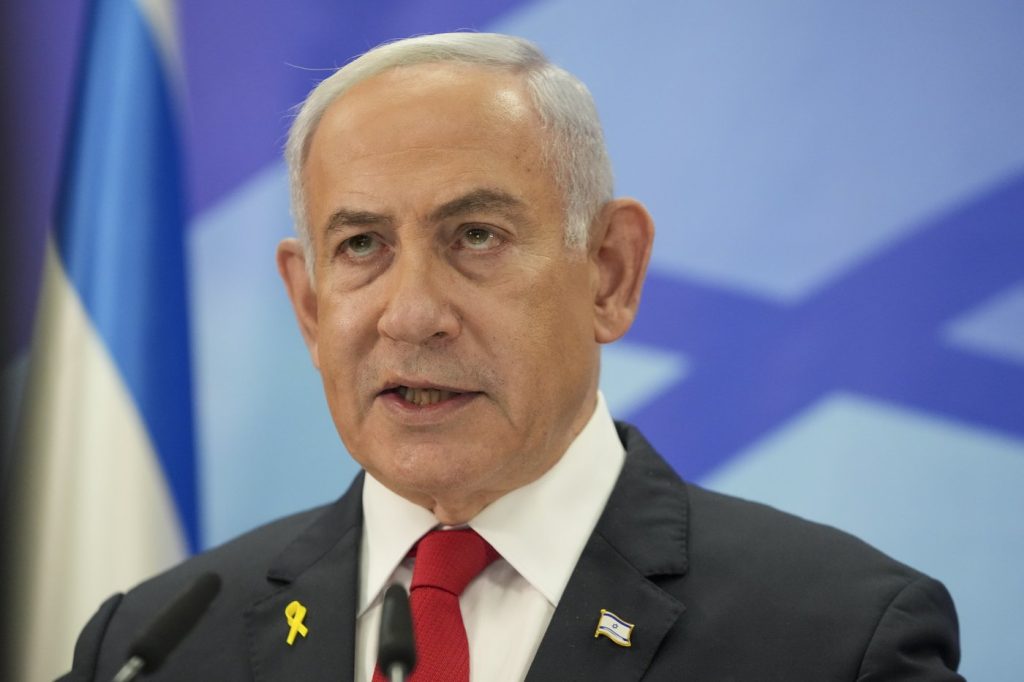TEL AVIV, Israel (AP) – In a significant diplomatic move, Israeli Prime Minister Benjamin Netanyahu is set to meet with U.S. President Donald Trump on Tuesday at the White House. This meeting marks Trump's first engagement with a foreign leader following his return to office. The discussions will center on crucial issues, including achieving “victory over Hamas,” countering Iranian influence, and potentially expanding diplomatic relations with Arab nations.
The backdrop of this meeting is the ongoing negotiations led by U.S. and Arab mediators to establish a new phase of an agreement aimed at winding down the conflict in the Gaza Strip and facilitating the release of numerous hostages held by militant groups. The ceasefire, which has been in place since last month, has been crucial in halting hostilities and has resulted in the release of several hostages, but tensions remain high, especially with Hamas prominently reasserting its presence in Gaza.
Since the conflict escalated on October 7, 2023, when Hamas launched a large-scale assault against Israel, the region has faced devastating consequences, including significant loss of life. Preliminary reports indicate that approximately 1,200 people, mainly civilians, were killed in the initial attacks, and more than 250 hostages were taken. As of now, over 47,000 Palestinians, including a substantial number of women and children, have lost their lives due to the Israeli air and ground assaults, according to local health authorities.
As Netanyahu prepares for the meeting, he faces considerable pressure from far-right partners in his government advocating for a continuation of military operations after the ongoing ceasefire agreement's first phase concludes in early March 2024. Netanyahu reiterated Israel's commitment to defeating Hamas and ensuring the safe return of the hostages captured during the October assault. The situation remains complex, with a significant portion of the Israeli government firmly opposed to any discussions of Palestinian statehood.
Historically, Trump has positioned himself as a strong supporter of Israel but has also expressed a desire to end U.S. involvement in prolonged Middle Eastern conflicts. In his prior administration, he facilitated normalization agreements between Israel and four Arab nations, and he is rumored to be aiming for a broader agreement to normalize relations between Israel and Saudi Arabia. However, any potential deal would hinge on the cessation of the current conflict and the establishment of a credible process toward a Palestinian state, a stipulation emphasized by Saudi officials.
The delicate situation around the hostages underscores the urgency of the negotiations. Hamas has stated that it will not release any further hostages in the second phase of the agreement unless the war is conclusively ended and Israeli forces withdraw entirely from the Gaza Strip. Under the current ceasefire terms, Hamas is expected to release a notable number of hostages while receiving thousands of Palestinian prisoners in return. Meanwhile, if negotiations falter, the resurgence of conflict could emerge in early March, leaving both parties vulnerable to the resumption of hostilities.
Netanyahu's government is at a crossroads, with key members threatening to exit the coalition if military action does not resume soon, which could lead to early elections and potentially shift the balance of power in Israeli politics. As the diplomatic landscape evolves and negotiations progress, conditions remain rife with uncertainty, with both sides weighing their options amid the backdrop of a deeply entrenched conflict.










